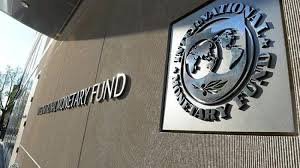The International Monetary Fund, on Tuesday, expressed worry over Nigeria’s ability to repay its foreign debt which had continued to rise.
Though it said conditions were favourable for the country to continue to borrow, the IMF equally expressed worry over the capacity to repay.
The Punch reports that the Financial Counsellor and Director, Monetary and Capital Markets Department, IMF, Tobias Adrian, while presenting the Global Financial Stability Report at the ongoing joint annual spring meetings with the World Bank in Washington DC, said, “Nigeria has been borrowing in international markets but we worry. So, on the one hand, that is very good because it allows Nigeria to invest more; but on the other hand, we do worry about rollover risks going forward.
“At the moment, funding conditions in economies such as Nigeria and other sub-Saharan African countries are very favourable but that might change at some point. And there is a risk of rollovers and there is the risk of whether these needs for refinancing can be met in the future.”
Recall that Nigeria’s total debt profile as of December 31, 2018, stood at N24.387tn. The figure swelled by 12.25 per cent from N21.725tn in 2017 to N24.39tn in 2018.
The Debt Management Office said the debt rose by N2.66tn from December 31, 2017 to December 31, 2018.
Statistics provided by the DMO showed that the country’s public debt rose from N21.73tn in 2017 to N24.39tn within the one-year period.
According to the DMO, the year-on-year growth of public debt show 12.25 per cent within the one-year period.
Meanwhile, the Federal Government has described the nation’s debt burden as sustainable.
Speaking on Wednesday in Abuja, the Minister of Budget and National Planning, Senator Udoma Udo-Udoma, argued that it posed no harm to the economy of Nigeria.
Udo-Udoma had argued that borrowing to spend on infrastructure and productive purposes was done by all countries, so long as there was a back-up revenue base.
He said, “With regard to our debts, our debts are sustainable.
“We do have a revenue challenge and we are focusing on that. Once the revenues come up, it will be obvious that we don’t have a debt problem at all.
“We are working on a number of initiatives to increase our revenues. We are looking at initiatives to widen the tax base. We are looking at initiatives to increase efficiency in collection.
“We are looking at a single window, which will help to increase efficiency, custom collections. We are looking at many different ways to improve revenues, Udo-Udoma said.






Leave a Reply